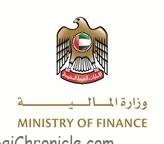Women still expect significant difficulties when sourcing employment in 2016. Qatari women were significantly more pessimistic than men about how easy it is to find a job, and they were three times more likely than men to consider ‘not knowing how to apply for a job’ to be a significant difficulty. In the UAE, females were significantly more likely than males to mention awareness of jobs (37% vs. 27%), suitability of jobs (37% vs. 25%) and knowing how to approach companies (27% vs. 15%) as difficulties encountered on the job search. Saudi females were significantly more likely than males to feel that the pay was too low for available jobs (40% vs 24%), whereas the most common gripe among Omani women concerned long working hours.
The good news is that many obstacles to increased female employment in the GCC are straightforward to overcome. Direct interventions such as interview training, CV workshops and mentoring can help improve female job candidates’ self-esteem and confidence. Similarly, well-designed job fairs and online portals can better connect employers with qualified female candidates. Flexible and remote work options may offer some relief to those females working unduly long hours. And while wages earned by women should equal those of male counterparts, higher wages across the board may prove to be a hard pill to swallow for GCC employers in the short-term.
Now is the time to take these recommendations seriously. One of the main findings of Oxford’s research into women’s employment over the years is that rather than women being the problem, it is actually a lack of understanding and in some cases fear amongst employers that limits women’s employment and careers. It is crucial more than ever before, particularly with the drop in oil prices and times of fiscal adjustment, that local governments and organisations alike increase the number of females in the workforce, be it through mentoring, internships, or through valued career guidance.




































